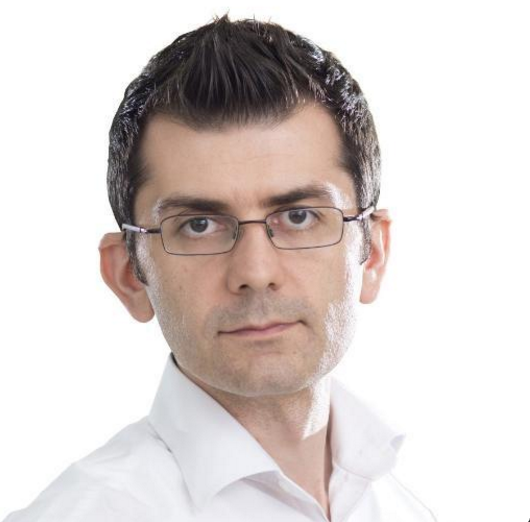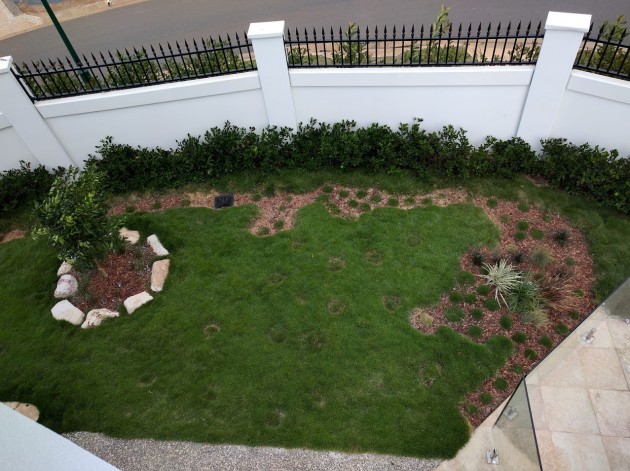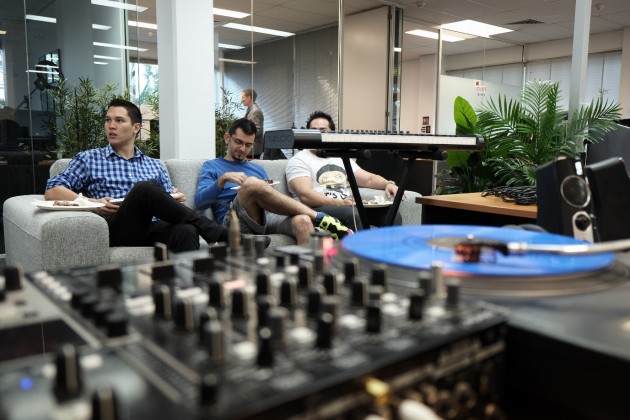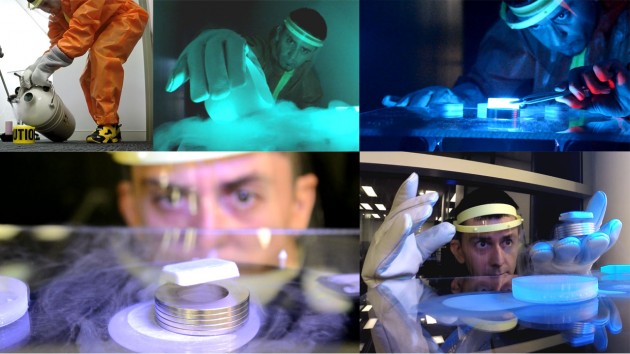



Dan Petrovic is widely-known search marketer, web author, event speaker and the managing director of DEJAN Marketing, an Australia-based search marketing company. Dan is also an adjunct professor at Griffith University, Australia and a chairman of the Industry Advisory Board for the Department of Marketing.
In this interview, Dan talks about his company DEJAN, link building in 2016, Rank Brain, Future of Google and more. Read on.
Kavin Paulson: Hi Dan, thank you so much for your time, we are honored to have you featured in The iMarketing Café. Can you tell us something that we do not know about you?
Dan Petrovic: I am currently engaged in a large-scale experiment with different types of exotic grass in my garden. I’m A/B testing Zoysia Tenuifolia and Zoysia Matrella observing how they compete for space and resources. The winner of my test is, unfortunately Matrella. The more expensive, and better looking Tenuifolia (aka Korean Velvet Grass) needs my help to survive its faster growing and more aggressive cousin.

I’m using mulch to space the two grasses out and allow my favourite type to proliferate around the edge of the lawn. In the image above you can see Tenuifolia strategically placed throughout the centre lawn which helps break up the hydrophobic soil pattern and deliver water to the root system of somewhat suicidal Matrella grass. This saves me from having to regularly apply various aeration techniques on the lawn. The time in the garden is my meditation which helps me defragment my thoughts, prioritise activities, think creatively or simply meditate on a problem.
Kavin Paulson: Tell us more about Dejan Marketing
Dan Petrovic: Dejan Marketing is a Brisbane based company with origins in pure link building. Over the last decade we’ve grown into a strategic, data-driven SEO company and continue to grow into a full-scale digital agency offering full marketing solution to our clients. In addition to our Australian offices we also trade in Europe and at the same time use the teams over there to assist our core team in Australia with research.

KP: Though, DEJAN is an Australia-based marketing agency, it enjoys world-wide brand recognition. What has been your core marketing strategy? ..and do you have any expansion plans?
DP: Despite being an Australian company we’ve traded internationally for many years now, in fact our biggest client was based in Spain. The reason for our success and popularity was a combination of our blog and video presence, boosted by social activity. Instead of being just another SEO blog we decided to publish only things that nobody else knows about. This means we blog less frequently but with greater impact.
KP: Your team’s research capabilities are evident from that fact that you create well-researched and insightful content. What makes your team highly competent? Can you tell us about the team building process at DEJAN?
DP: We do all sorts of weird and unusual things, but in the real world this doesn’t pay the bills. This is why I personally lead DEJAN Labs and any great ideas from this department then graduates to being used by the whole team. Likewise, great ideas happen while people do regular work and I always like to hear about them. My preference on team building is on true comradery and support at work on day to day tasks, but others in the company have different ideas so we get things like this happening:

KP: What do you think is the biggest challenge when it comes to handling SEO clients in 2016?
DP: I think a lot of clients have unrealistic expectations from content marketing as a service. This bubble is about to burst and many are going back to good old link building. I have a practical thought on this and think that combining both isn’t such a bad idea.
KP: Do you see the effects of Rank Brain? What do you think has changed since Rank Brain?
DP: RankBrain is not very useful nor interesting to me as an exploitable entity. I see it as a new way for Google to select results prior to ranking them, and that is all.
KP: A few words about link building in 2016.
DP: In Australia link building works like a charm. I think I made a mistake on making our quality guidelines too strict there for the last three years. Google’s Penguin was a disappointment and I don’t expect the next one to clean things up either. So yeah, if you want to rank high and not have to work hard for earning your links do your “designer anchor text” and make sure your links don’t look too fake.
KP: What is that one piece of advice that you would like to give to upcoming Marketers?
DP: Make sure you understand meaning behind data and can make actionable, strategic decisions based on what you discover. Here’s a picture that speaks a thousand words:

KP: Where do you see Google five years from now?
DP:
Google’s Evolutionary Timeline
Level 1: Semantic Capabilities (2012-2015)
Currently Google is capable of rendering basic data available and making sense of rudimentary knowledge nodes. In the next few years we will see Google’s search results to be answering our questions more efficiently and start to see the first glimpses of something “smart”.
• Personal characteristics and behavioural patterns
• Connections, affiliations, status and memberships
• User intentions and preferences
• Temporal, time-sensitive data
Level 2: The Smart Machines (2015-2030)
Once Google refines the algorithmic treatment of single-index it will be able to:
• Predict, suggest, influence and aid future choices
• Research and summarise findings for the user
• Perform background investigative work
• Assist in self-paced learning
• Act as a virtual assistant
• Content curation
Level 3: Artificial Intelligence (2030+)
• Act as a representative
• Join the discussion
• Create new content
• Teach a subject
Level 4: Augmentation (unknown)
• Conversation stops, search stops
• We simply know what we wish to know
The above is from Conversations with Google I published in 2013. You might also want to check out this post I wrote back in 2014.
KP: If you could change one thing about Google, what would it be and why?
DP: I would stop issuing manual or algorithmic penalties and just ignore links I see as inorganic. In 2013 I wrote a message to Google in this post, saying:
Things are going pretty well, don’t screw this up. Your enhanced ability to catch spam followed by aggressive linkspam actions in the last few years have finally started making a dent. Webmasters are gradually abandoning unsafe link practices due to an increased risk of algorithmic and manual actions. This is a good time to show that you’re really rewarding high quality websites and one of the best ways to show this is to invest further into catching spam. Invest more time and money in search quality and anti-spam mechanisms.
There is nothing more frustrating than watching your website lose organic search traffic to somebody you know is spamming and getting away with it. Given enough time Google, if you don’t take action against everyone fairly you’re basically convincing the good guy to abandon best practices and catch up to spammers in their spammy ways. If it works, then why not? We’ll deal with the penalty when it comes, in the meantime we’re funnelling profits and growing our business.
Stop with petty actions against naive and gullible webmasters and look at handling things on an algorithmic level – with confidence. Once you gain the confidence in your results on an algorithmic level, you’ll be able to safely drop the manual policing of whatever the trend it is that webmasters are talking about. You’ll simply know that whatever people in the world come up with your algorithm can handle it.
KP: How would you describe yourself in one word?
DP: Curious.
KP: What is your vision for DEJAN Marketing?
DP: I’d like to see DEJAN Marketing grow into a Google-independent marketing agency.
KP: Where do you see yourself five years from now?
DP: Right here, leading DEJAN Marketing and driving innovation in the company. I love what I do.
KP: If you were not a marketer, what would you have been?
DP: A physicist perhaps.

KP: On a lighter note, what would you do if you woke up one morning and found that you had become Sundar Pichai, the CEO of Google? 😀
DP: I would allow Google’s engineers to do more experimentation and drive initiative with AI-based ranking systems. They’ve trimmed down a lot and I think this conservative approach makes impressive quarterly reports for their shareholders but it’s not in Google’s best interest in the long term. The only true way to deal with the scale of the web is to let the machine learn how to retrieve and rank results, not some static algorithm.
KP: Thank you so much Dan. It was great talking to you and all the very best in your future endeavors.
DP: Pleasure, thank you for having me.
Connect with Dan on Twitter
 Interview: In Conversation with Ian Lurie, Founder of Portent, a Digital Marketing Agency
Interview: In Conversation with Ian Lurie, Founder of Portent, a Digital Marketing Agency
 Interview: In Conversation with Brian Carter, Bestselling Author and CEO of The Brian Carter Group
Interview: In Conversation with Brian Carter, Bestselling Author and CEO of The Brian Carter Group
 Interview: In Conversation with Larry Kim, Founder of WordStream, an Internet Marketing Software Firm.
Interview: In Conversation with Larry Kim, Founder of WordStream, an Internet Marketing Software Firm.